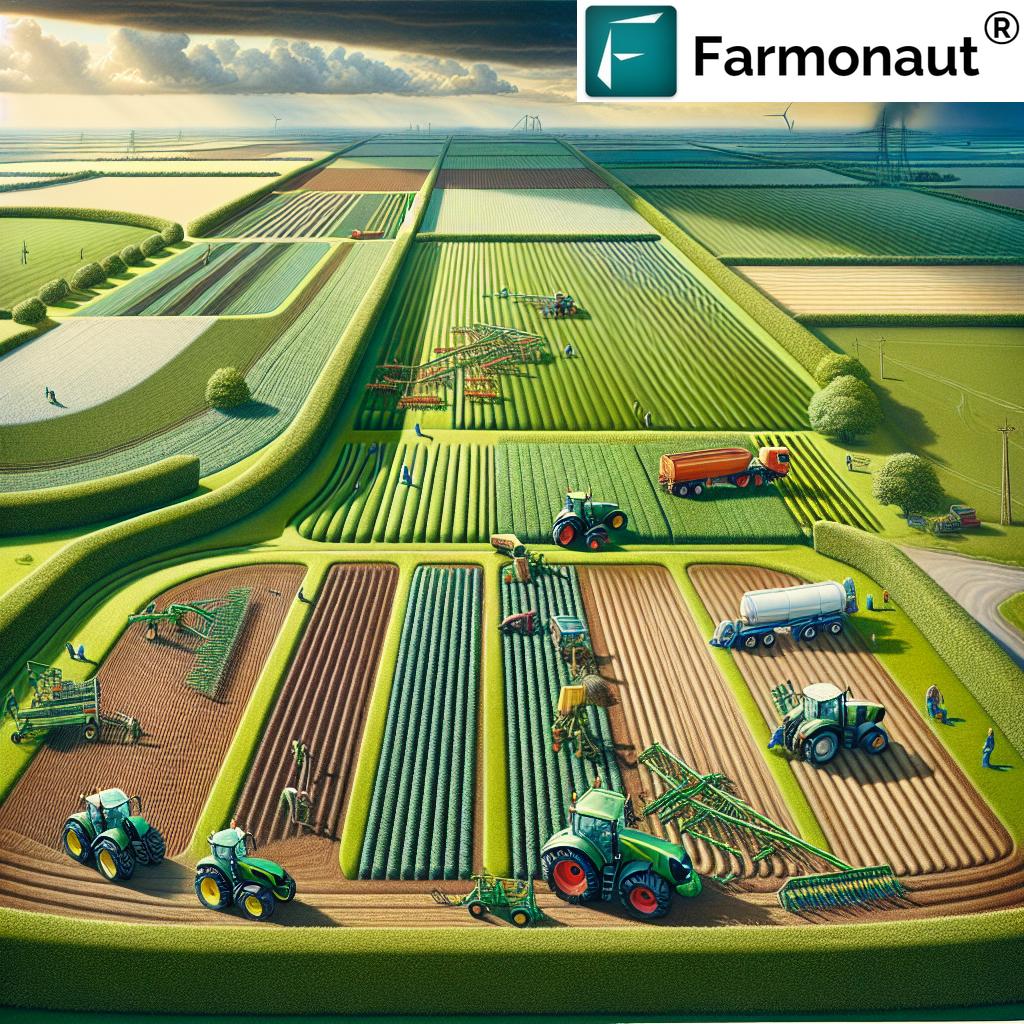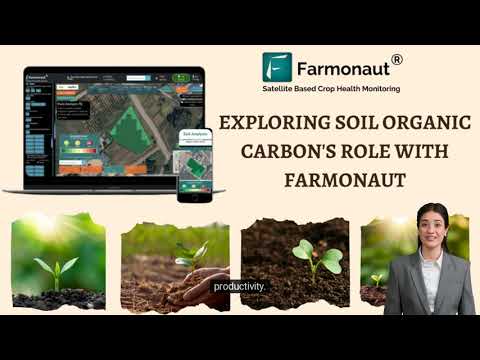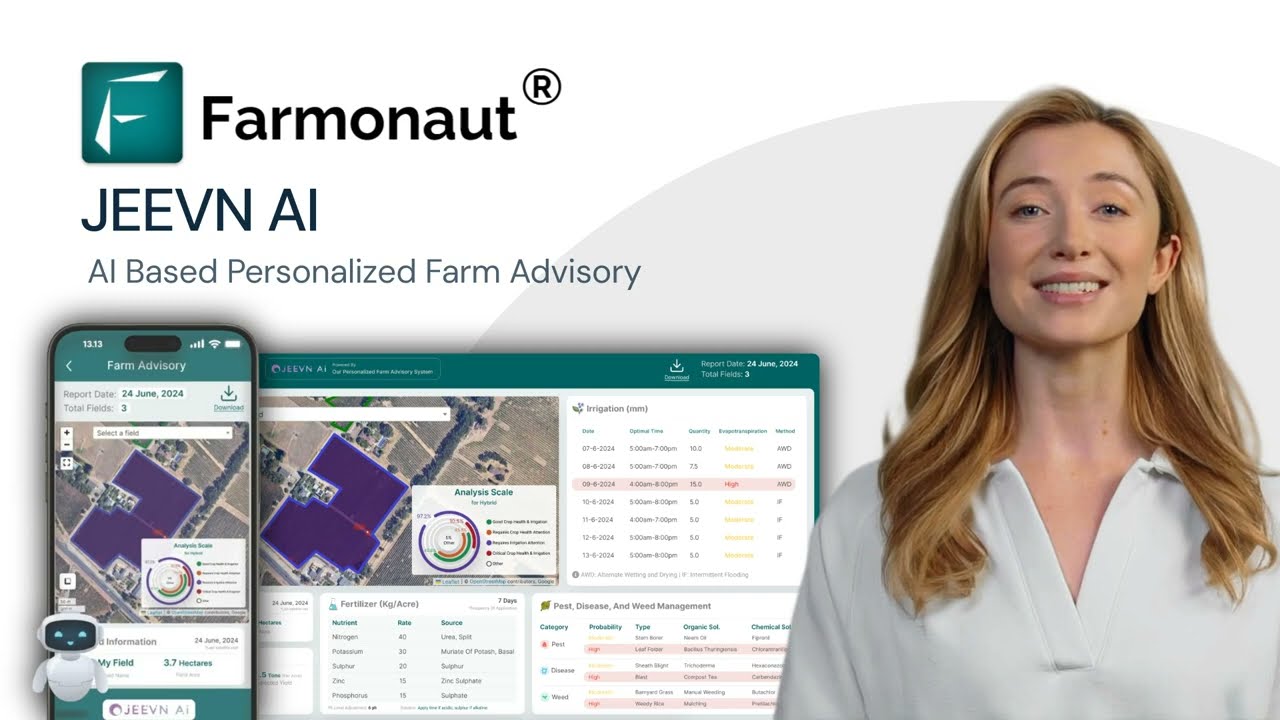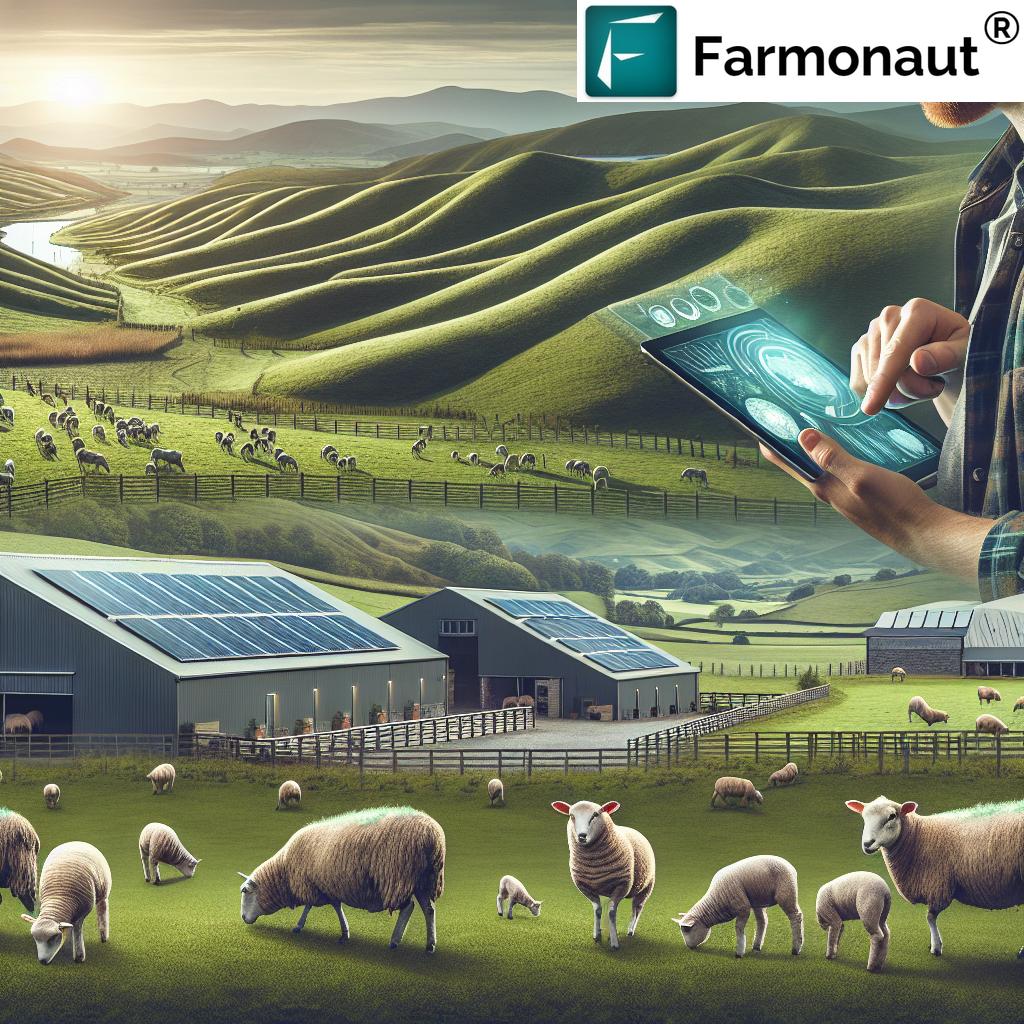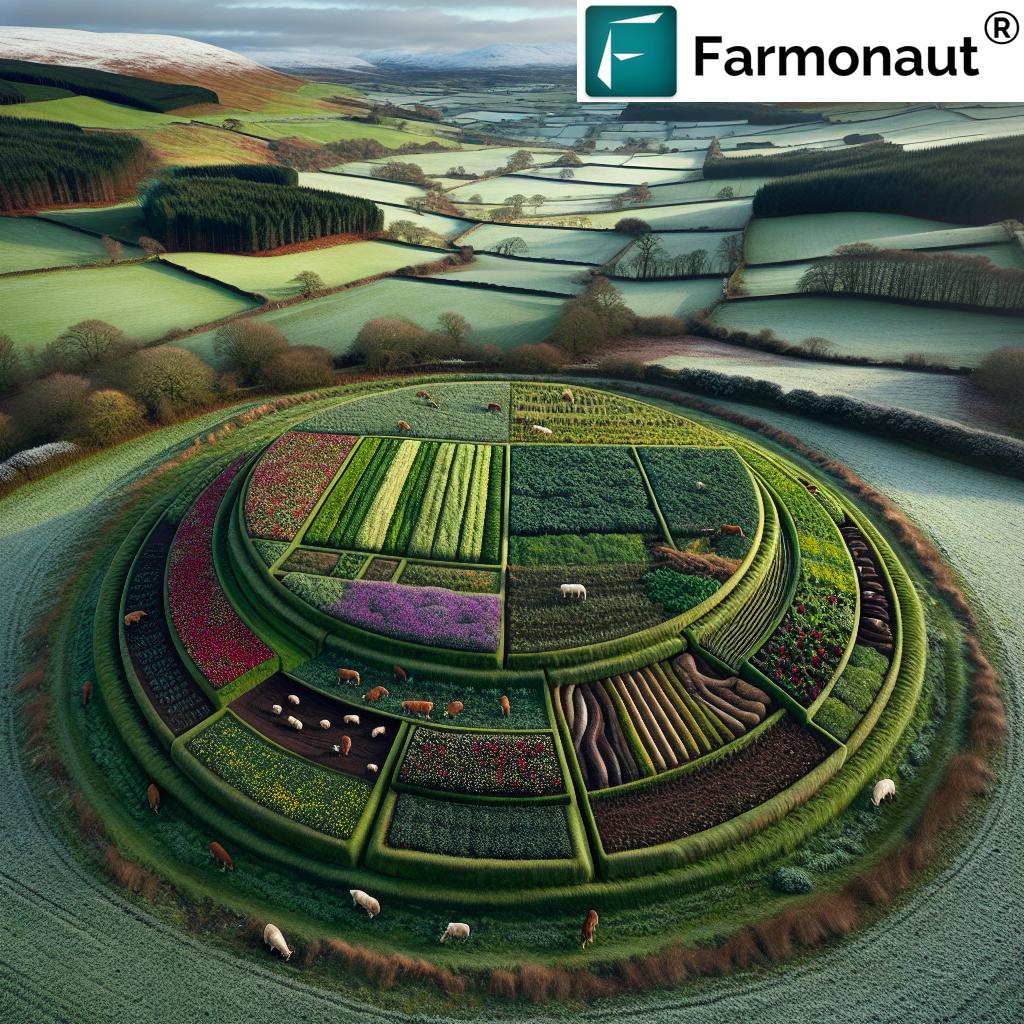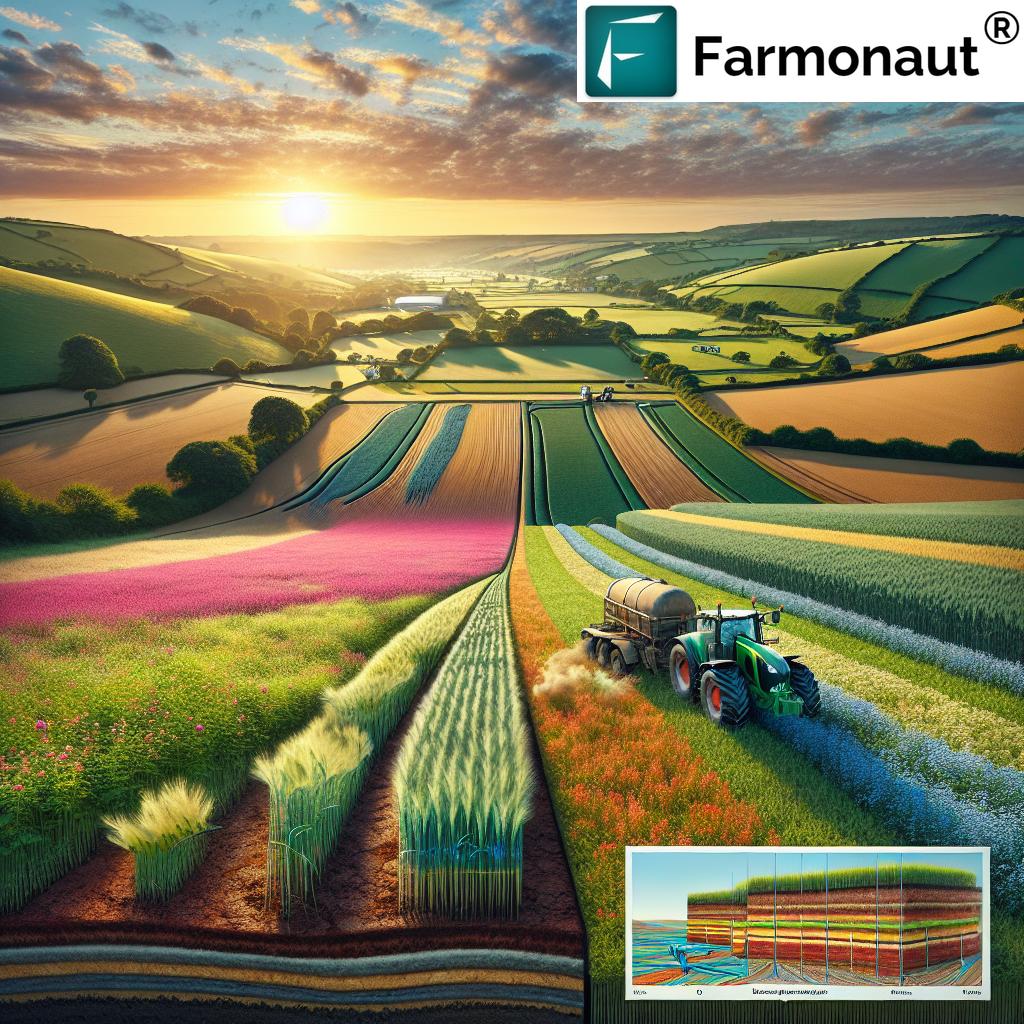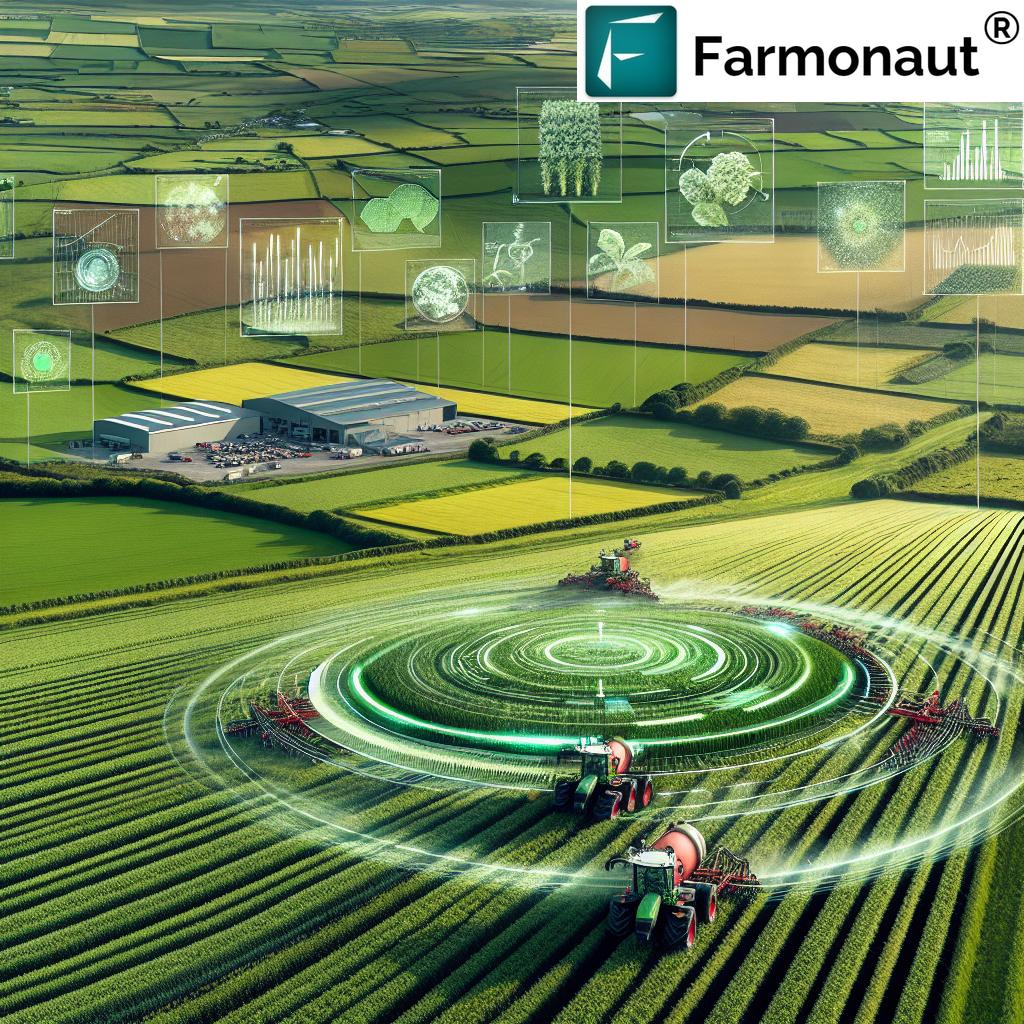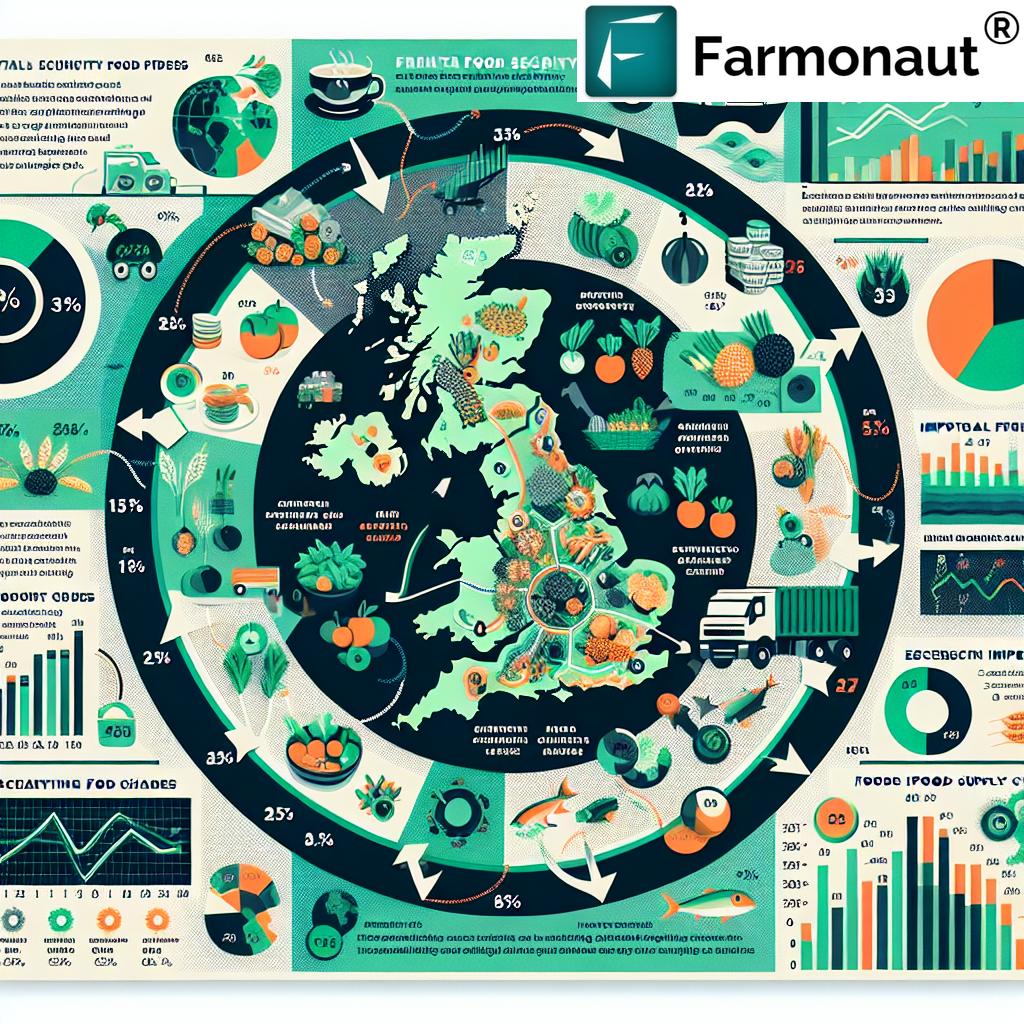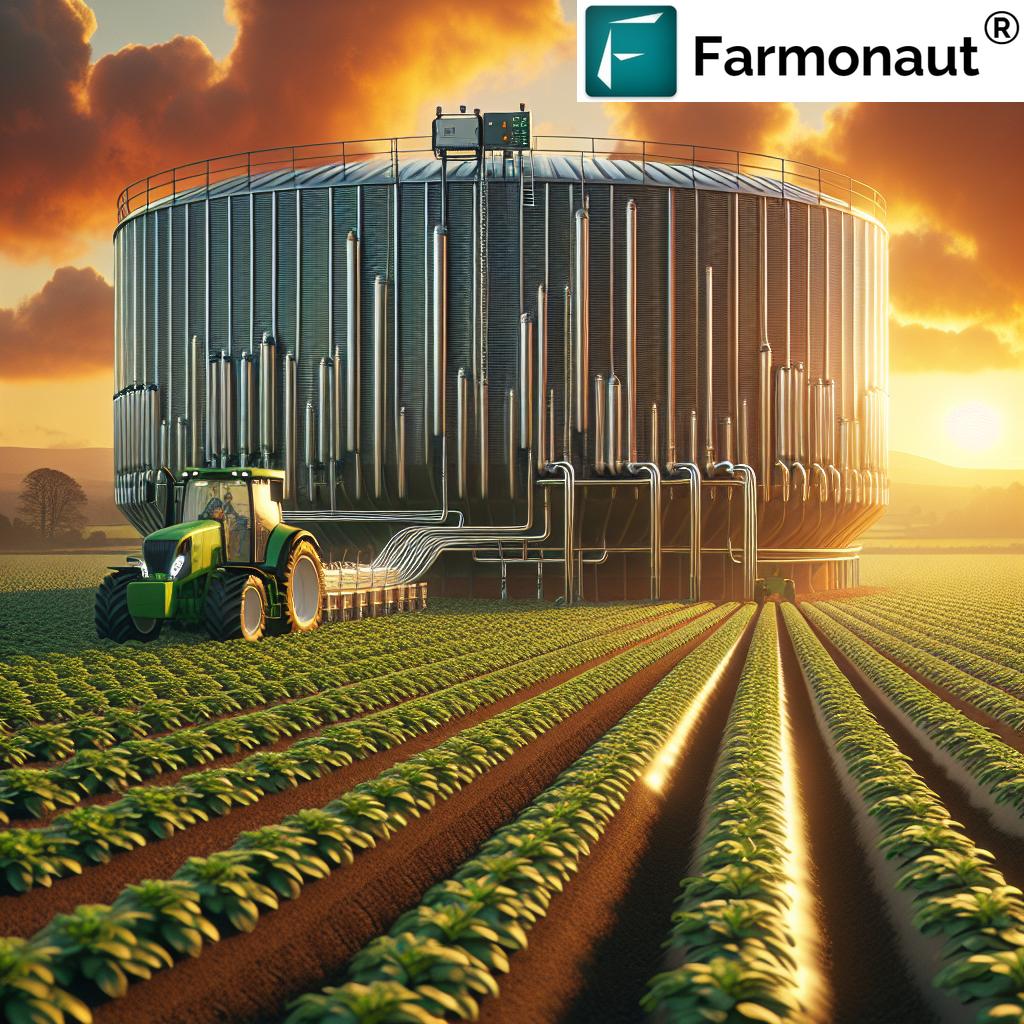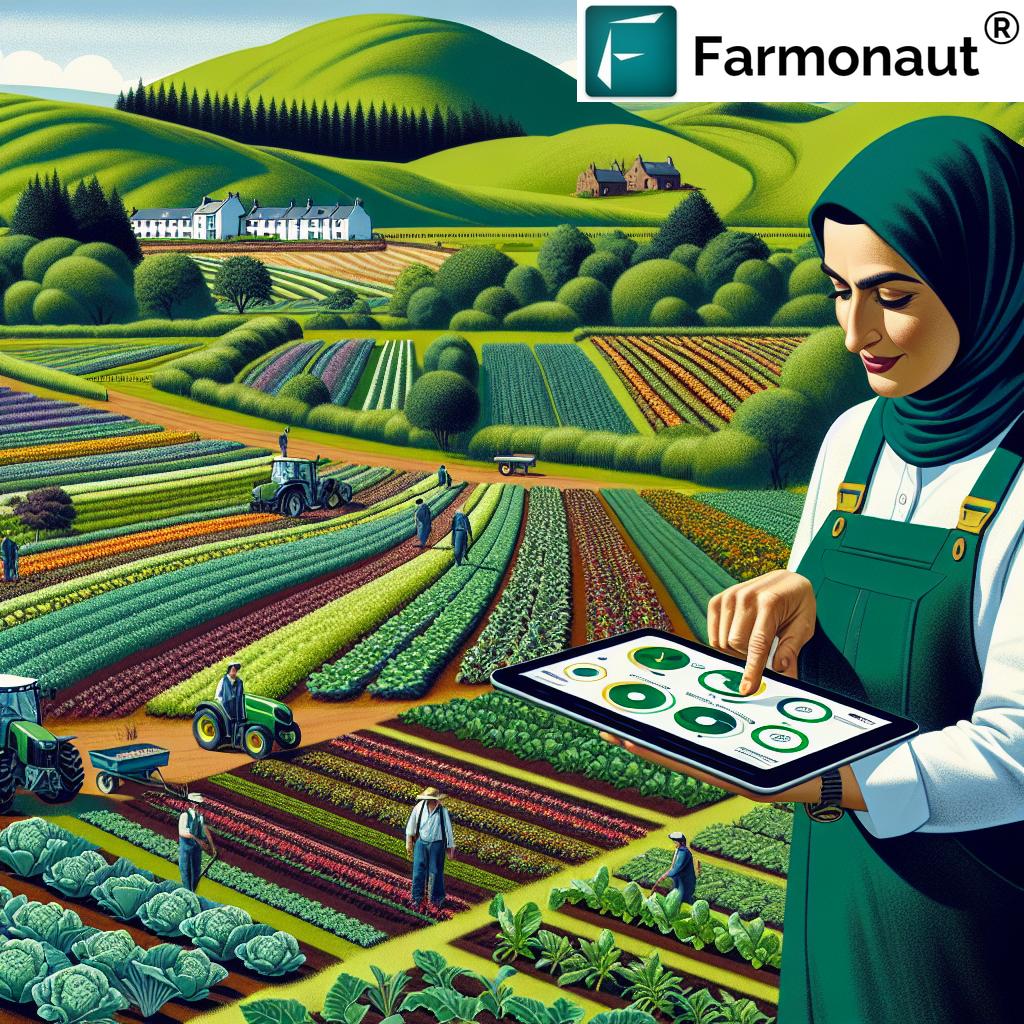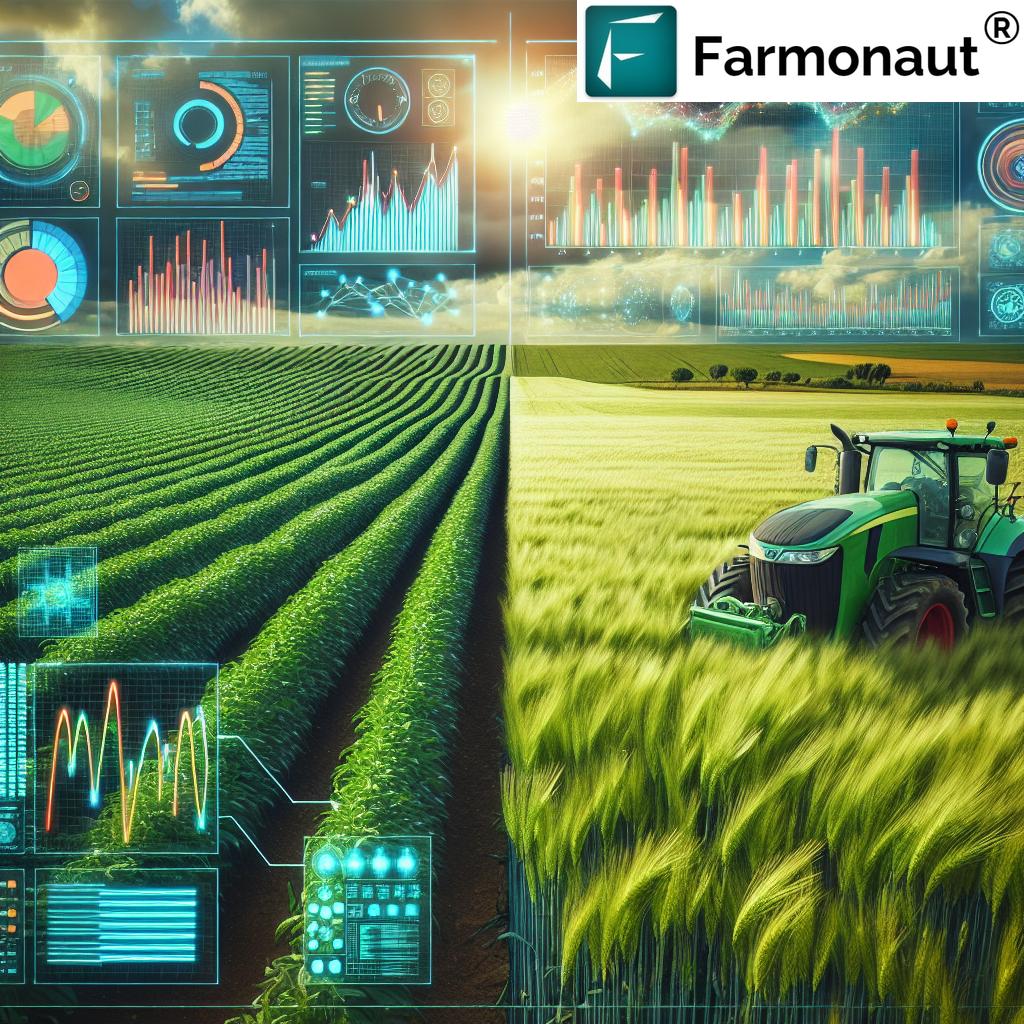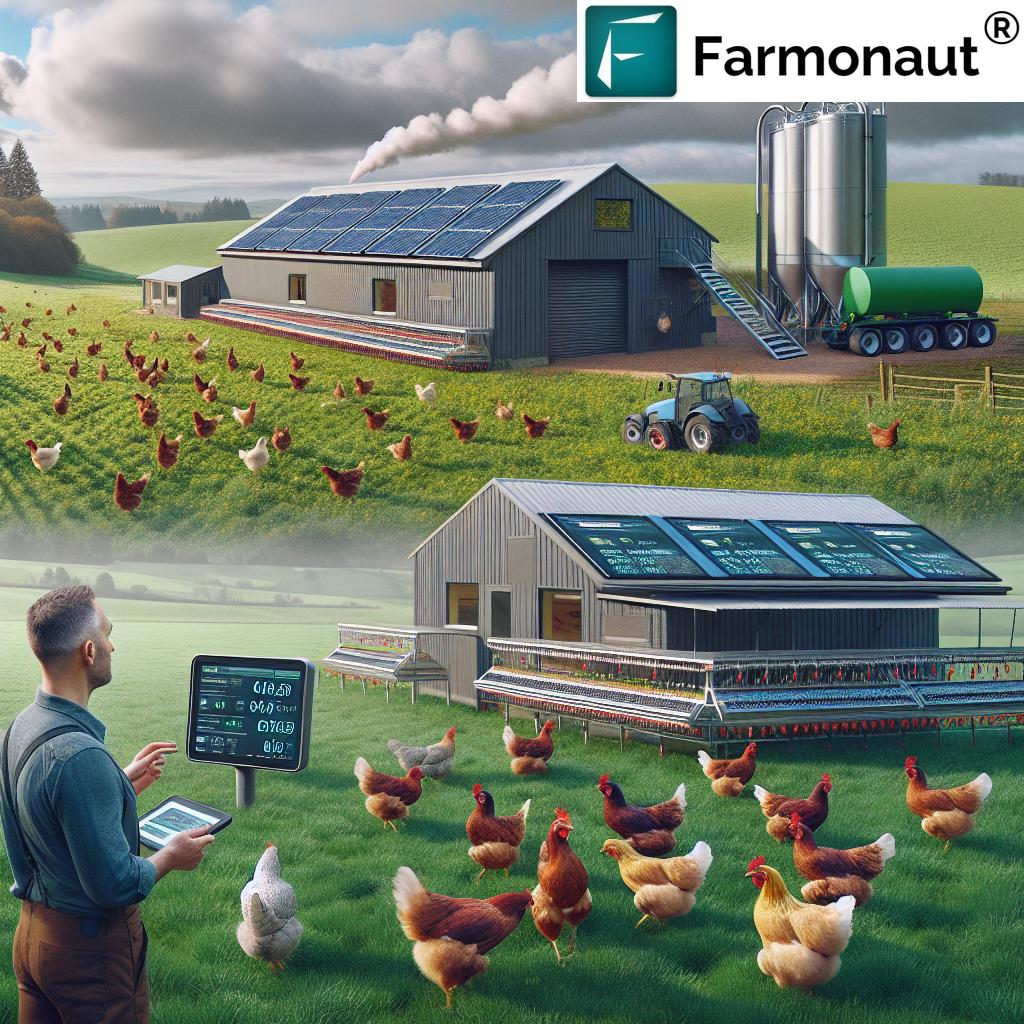UK Food Supply Resilience: 7 Top Farming Strategies
“Over 70% of UK land is used for agriculture, making sustainable farming vital for national food security.”
- Introduction: The Case for UK Food Supply Resilience
- Current State of UK Food Supply Resilience
- 7 Top Farming Strategies for Food Supply Resilience
- Comparison Table of Top 7 UK Sustainable Farming Strategies
- Government Policies & Initiatives
- Technological Innovations Enhancing Resilience
- Environmental and Climate Change Challenges
- Land Use, Conservation, and Food Production Balance
- Farmonaut and Digital Food Supply Resilience
- FAQ: UK Food Supply Resilience
- Conclusion: Securing a Sustainable Food Future
Introduction: The Case for UK Food Supply Resilience
UK food supply resilience is no longer just a policy buzzword – it’s a national imperative. With over 70% of UK land dedicated to agriculture, sustainable farming practices underpin our country’s food security, health, and economic stability. Recent challenges—from shifting weather patterns and economic pressures to the impact of Brexit on UK agriculture—have pushed questions of food production and resilience to the forefront of public debate.
Several factors contribute to the urgent need for robust food supply systems in the UK: reduced harvests, subsidy cuts, changes in government policies, and increasing pressure to adapt to climate change. As we explore the top 7 farming strategies that drive UK food supply resilience, we will consider how innovations, sustainable management practices, and technology can help us enhance yields and maintain a secure, stable supply of food for the nation.
Current State of UK Food Supply Resilience
The current state of the UK’s food supply presents a complex picture, shaped by rapid policy changes, environmental challenges, and global uncertainties.
Key Pressures Impacting Food Production
- Subsidy Cuts & Policy Change: The shift from the EU’s Common Agricultural Policy to homegrown schemes (such as the SFI and ELM) has caused financial concerns and uncertainties for many UK farmers.
- Brexit and Imports: The impact of Brexit on UK agriculture has caused both opportunity and insecurity — with changing tariffs, increased reliance on imports, and regulatory headaches.
- Reduced Yields due to Extreme Weather: Poor harvests in recent years, triggered by floods and droughts, have highlighted the vulnerability of the UK’s agricultural system.
The National Farmers Union (NFU) has been vocal regarding declining domestic food production and the increasing risks these shifts pose to food security in the UK.
7 Top Farming Strategies for Food Supply Resilience
Building a resilient and sustainable food system in the UK requires a multi-pronged approach. The following seven strategies are at the heart of UK food supply resilience, with proven benefits for yields, environmental protection, and long-term food security.
1. Regenerative Agriculture UK
- Overview: Focuses on restoring soil health, increasing biodiversity, and reducing dependence on synthetic inputs through crop rotation, reduced tillage, and cover cropping.
- Food Security Benefit: Boosts resilience by improving soil structure and fertility, ensuring more stable yields even in adverse weather conditions.
- Policy & Support: Backed by the Sustainable Farming Incentive (SFI) and supported by increasing market demand for sustainably produced food.
2. Precision Farming Technology
- Overview: Employs AI, data analytics, and IoT to optimize inputs (such as water, fertilizer, and pesticides) based on real-time field data.
- Food Security Benefit: Enhancing crop yields and minimizing waste, contributing to food supply stability and reduced environmental impact.
- Recommended Solution: Farmonaut’s platform empowers farmers with real-time crop health monitoring, large-scale farm management, and actionable insights for sustainable resource allocation.
3. Diversification for Resilient Farming
- Overview: Involves expanding farm activities to include value-added processing, agritourism, renewable energy production, or other non-traditional ventures.
- Food Security Benefit: Spreads risk, improves farm income resilience, and aids in mitigating market and climate challenges.
- Government Support: Programs that reward diversification and sustainability, especially under SFI and ELM schemes.
4. Cover Cropping and Soil Health
- Overview: Planting cover crops such as clover and rye between main crops to protect and enrich the soil.
- Environmental Benefit: Reduces soil erosion, increases carbon capture, and improves water retention, vital for climate change adaptation.
- Innovation: Technologies such as carbon footprint tracking by Farmonaut help understand and improve the impact of these practices.
5. Robotics and Automation in UK Agriculture
- Overview: Deployment of robotics (e.g., autonomous tractors, drones) to reduce labour needs and increase precision in farming.
- Food Supply Benefit: Enhances efficiency, enables precise application of resources, and supports food supply even with workforce shortages.
- Adoption: Accelerating due to government initiatives focused on technology in agricultural management.
6. Integrated Environmental Land Management Schemes
- Overview: Environmental Land Management (ELM) schemes provide financial support for practices that enhance biodiversity, reduce emissions, and improve land resilience.
- Balance: Seeks to reconcile food production needs with the conservation and environmental targets of the UK government.
- Challenge: Ensuring these policies don’t inadvertently reduce national self-sufficiency in food.
7. Flood Resilience and Water Management
- Overview: Building and maintaining flood defences, adopting water storage and efficient irrigation systems to buffer against climate variability.
- Food Security Impact: Reduces risk of catastrophic crop losses during extreme weather events and flooding.
- Example: The UK government’s investment in rural infrastructure supports this approach.
“The UK aims to reduce farming emissions by 30% by 2030 through innovative climate-resilient strategies.”
Comparison Table of Top 7 UK Sustainable Farming Strategies
This rich comparison offers a clear, side-by-side view of food supply resilience strategies, supporting SEO for “sustainable UK farming”.
| Strategy Name | Environmental Benefit | Estimated Yield Impact (% Change) | Policy Support | Climate Challenge Addressed | Adoption Rate (% of UK Farms, Est.) |
|---|---|---|---|---|---|
| Regenerative Agriculture | Soil health, biodiversity, carbon sequestration | 7–15% increase (over 5 years) | Yes (SFI, ELM) | Drought, soil erosion | 10% |
| Precision Farming Technology | Reduced resource waste, emissions | 5–10% increase | Yes (Innovation grants) | Input scarcity, climate variability | 18% |
| Diversification | Income stability, risk reduction | Varied, indirect effects | Yes (Multiple rural programs) | Economic volatility | 35% |
| Cover Cropping | Reduced erosion, improved soil structure | 2–6% increase | Yes (SFI, ELM) | Rainfall extremes | 20% |
| Robotics & Automation | Lower fuel, labour savings | 5–9% increase | Yes (Tech grants) | Labour shortages | 12% |
| Environmental Land Management | Habitat creation, carbon reduction | Neutral to slight decrease | Yes (ELM) | Biodiversity loss | 40% |
| Flood & Water Management | Reduced flood risk, water storage | Loss avoided, up to 10% | Yes (Rural Infrastructure funds) | Floods, drought | 25% |
Government Policies & Initiatives Driving Sustainable Resilience
Government interventions are fundamental to supporting food supply resilience and incentivising sustainable farming practices. Several initiatives directly respond to UK agriculture and climate change challenges and build a strategic vision for the country’s food security:
Sustainable Farming Incentive (SFI) Scheme
- What is it? An incentive scheme to encourage farmers to adopt environmentally friendly practices — including soil health improvement, integrated pest management, and reducing pesticide use.
- Outcome: Aims to ensure the long-term capability of UK agriculture while supporting sustainability. It’s part of a larger transition from direct subsidy payments to a “public money for public goods” approach.
Environmental Land Management (ELM) Schemes
- Overview: The ELM is the government’s principal mechanism for financial support aimed at biodiversity and land management improvements.
- Debate: Some farmers fear that too much focus on rewilding and low-carbon uses could reduce productive farmland (with the government estimating that nearly 10% of England’s farmland may be converted) and ultimately threaten domestic food supply.
Annual Food Security Index
- Purpose: Designed to monitor and ensure national food security levels, by tracking production rates, import reliance, and resilience to external shocks.
- Benefit: Helps guide future policy decisions and maintain focus on crucial self-sufficiency targets.
Technological Innovations Enhancing UK Food Supply Resilience
The Role of Technology in Food Security
Technological advancements are pivotal to enhancing food supply resilience and creating a future-proof farming sector. By utilizing artificial intelligence, satellite imagery, and data analytics, the UK agricultural sector can increase efficiency and minimize environmental impact.
- Precision Farming: Precision farming technology harnesses sensors, satellite data, and real-time feedback to guide decision-making on fertilizer and water usage, optimizing crop yields.
- Robotics & IoT: Drones and autonomous machinery can plant, weed, and harvest with unparalleled precision, reducing labor dependency and improving resource use.
- Data-Driven Advisory: Platforms like JEEVN AI (by Farmonaut) provide actionable insights directly to farmers’ devices, boosting productivity through smarter resource management.
- Traceability & Blockchain: Solutions like Farmonaut’s blockchain-based traceability system ensure transparent, tamper-proof records of food journeys “from farm to fork” — essential for food safety and consumer trust.
APIs and Platform Integrations
-
Developers and businesses can leverage Farmonaut’s API for easy integration of satellite and weather data into their systems.
Further details are found in the API Developer Docs.
Farmonaut’s real-time crop monitoring, fleet management, and satellite-based crop loan and insurance verification tools ensure affordable, transparent, and efficient agricultural management for all stakeholders.
Environmental and Climate Change Challenges in UK Agriculture
Environmental challenges—including climate change, unpredictable weather events, and biodiversity loss—threaten both yields and the future of the UK’s food supply. Enhancing resilience means proactively managing these risks:
Extreme Weather and Farm Infrastructure
- Flooding, prolonged droughts, and irregular rainfall patterns are increasing in frequency and severity, leading to poor harvests and infrastructure damage.
- The government’s flood resilience investments help mitigate the risk of catastrophic crop failures.
Policy Response to Climate Change
- Government climate targets require 10% of England’s farmland to be diverted to rewilding or low-carbon uses by 2050 to reduce emissions.
- While vital for meeting environmental goals, this raises significant debate about food production capacity and supply chain risks.
Land Use, Conservation, and Food Production Balance
Land Management: The Challenge of Competition
- Competing demands for land—from agriculture to housing, renewable energy, and conservation—require a more strategic approach to ensure food supply remains a priority.
- The introduction of a national land use framework is aimed at balancing these needs—though many farmers remain wary of overly prescriptive regulations that could threaten the nation’s food sovereignty.
Conservation and Rewilding Initiatives
- Conservation Programs: Many government-supported conservation and biodiversity programs overlap directly with areas of high food production. The challenge is how to preserve wildlife and landscape while maintaining a strong agricultural sector.
- Farmonaut’s Approach: By leveraging satellite and AI data, we help farmers balance productivity and environmental stewardship. Advanced tools facilitate better land mapping, carbon tracking, and the identification of ideal rewilding locations without jeopardizing essential food supply.
Farmonaut and Digital Food Supply Resilience
At Farmonaut, we are committed to making precision agriculture affordable, accessible, and scalable for every farmer in the UK and worldwide. Our mission is to empower the agricultural community with innovative tools needed for effective resource management, climate adaptation, and decision making.
Our Key Technologies & Benefits
- Satellite-Based Crop Health Monitoring: We harness multispectral satellite imagery for real-time crop health assessment (NDVI), soil moisture tracking, and yield prediction, facilitating smarter choices on irrigation and fertiliser.
- Farm Management via AI: Our JEEVN AI advisory system integrates weather data, soil insights, and best-practice recommendations for proactive and sustainable farming.
- Blockchain for Traceability: By utilizing blockchain technology, our traceability solutions provide a transparent, secure record of each agricultural product’s journey—enhancing both food safety and brand trust.
- Resource and Fleet Management: Our platform includes fleet & resource management to maximize equipment use and reduce operational costs for farmers and agribusinesses.
- Carbon Footprint Tracking: We offer carbon footprinting services to help farmers measure and reduce their environmental impact—aligning with government climate targets.
Our data-driven approach enables agricultural stakeholders to reduce input costs, enhance crop yields, and transition towards truly sustainable farming practices.
Looking for an integrated platform for large-scale field or plantation management? Our Agro Admin App helps you manage multiple land parcels efficiently, with instant notifications, season analysis, and fleet operations support.
FAQ: UK Food Supply Resilience
What is food supply resilience?
Food supply resilience is the ability of a country’s food system to absorb shocks (such as extreme weather, market disruptions, or policy change), adapt to new challenges, and recover quickly—ensuring a stable, accessible, and nutritious food supply for all.
How does climate change affect UK farming?
Climate change leads to increased weather variability, more extreme droughts and floods, new crop pests, and shifting growing seasons. All of these threaten yields, increase risks for farmers, and create the need for new resilient farming techniques.
What role does precision farming play in food security?
Precision farming uses technology to make smarter, data-driven decisions about resource use (water, fertilizer, pesticides), minimizing waste, enhancing yields, and reducing environmental impacts. This approach strengthens overall food resilience.
Why are cover crops important?
Cover crops protect the soil between planting seasons. They reduce erosion, enhance soil fertility and organic matter, suppress weeds, and can absorb excess rainfall—making fields more resilient to both dry and wet extremes.
What is the Food Security Index?
The UK government’s annual Food Security Index tracks food self-sufficiency, import rates, and resilience to shocks. It’s used to inform policy and maintain a focus on national food supply stability.
How is Farmonaut helping UK farmers?
We provide advanced, satellite-based crop monitoring, resource management, and data-driven AI advice, making precision agriculture accessible and affordable. This helps farmers boost yields, cut input costs, and meet sustainability targets.
Conclusion: Securing a Sustainable Food Future for the UK
Ensuring UK food supply resilience is a multifaceted, ongoing process. It demands coordinated action across policy, technology, and farming practice—and the willingness of the entire food system to continually adapt.
- Government leadership—through proactive policy decisions such as the SFI and ELM—are necessary to reward sustainable practices and protect future yields.
- Technological advancements—including satellite crop monitoring, AI farm advisory, blockchain traceability, and resource management platforms (like those we offer at Farmonaut)—are making it easier for every farmer and agribusiness to meet food security and climate goals.
- Environmental stewardship and adaptive land use management will remain crucial as the UK faces new challenges in the years ahead—balancing conservation, food production, and sustainability.
With a balanced, evidence-based approach—and continued support for innovation and best practice—the UK can build a stable, secure, and sustainable food supply system that stands resilient in the face of uncertainty.
Stay ahead of the curve in sustainable, resilient food production.
Get started with Farmonaut’s precision farming tools today.


